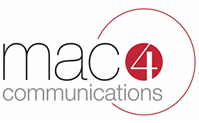
While Hurricane Florence itself was no laughing matter, many people did have a good chuckle watching the video of a Weather Channel reporter intensely bracing for the storm while two men casually walked by at a comfortable pace behind him. Clearly, he was exaggerating the wind’s severity to produce more gripping storm footage. And while the incident made for some entertaining memes, it should also be a reminder of one important communications rule: Tell the Truth.
As communications professionals, it’s our job to tell our clients’ stories in the most favorable and interesting way possible. However, there’s a fine line between sharing information in the best possible light and promoting a narrative that’s simply not true. And whether we are talking about external communications to the public or internal communications to employees, telling the truth has a better long-term outcome (even if it’s sometimes more difficult in the short term). Here’s three reasons why:
It can help with brand loyalty and company reputation. Truth has never been so valuable as it is today, in the era of fake news. Everyone is a cynic and most consumers are hesitant to believe news or claims from companies. The manner in which a company responds to a crisis – how truthful they are and how quickly they acknowledge appropriate responsibility for an incident or mistake – can make or break its future business stability. And honesty isn’t only important in the formal communications coming directly from a company. Paying users for fake product reviews or bribing Instagram influencers for seemingly genuine promotions are other examples of situations where dishonest communications do not pay off in the end.
It can increase employee retention and trustworthiness. When employees feel like they are being treated fairly and internal communications are open and honest, they are more likely to stick with – and work harder for – their employer (even during difficult times). Employees can be a company’s biggest advocates. Communications should contain the bad along with the good, for authenticity, for ethical reasons, and as a responsibility to your employees. Organizational changes are a little easier to swallow if employees understand the reasons and the process. People want the true information and to be a part of a company where leaders demonstrate ethics and honesty. And if they don’t care about ethics or honesty, they probably aren’t the type of employees you are trying to retain.
Over time, your communications will be perceived as genuine. Even if honesty hasn’t always been the policy in your communications, it’s not too late to make a change. And if you already have a reputation for denials and dishonesty, officially announce the change. Own your mistakes and explain how things will be different in the future. Whether it’s a public statement to customers or an internal email to employees, reaffirm your commitment to ethical communications practices. And then actually do it, since a reputation for truthfulness is earned only through action.
Honesty and integrity matter, perhaps now more than ever before.
Author: Estera Hayes

